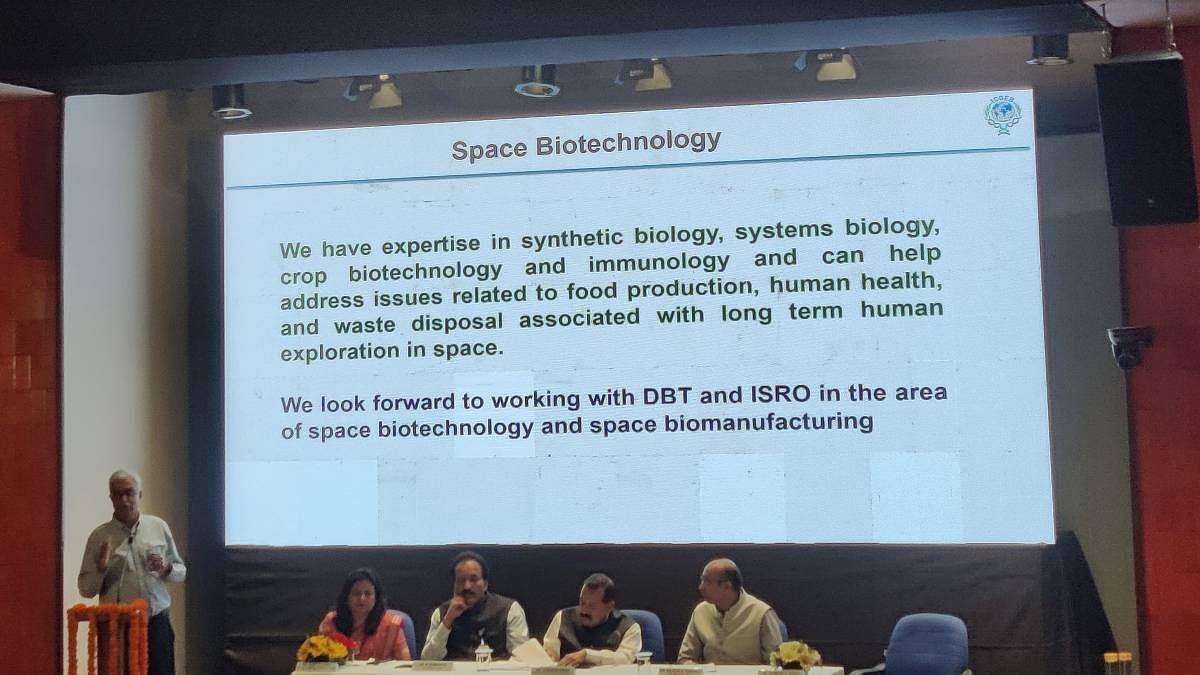New Delhi: The Indian Space Research Organisation (ISRO) and government’s Department of Biotechnology (DBT) have partnered to conduct a series of experiments in space, including testing the impact of metabolic supplements on muscle regeneration under microgravity and assessing how microgravity radiation reacts on microalgae at the International Space Station (ISS).
Some of these biotechnology experiments are also likely to make it on-board the Gaganyaan mission scheduled for next year.
On Friday, ISRO and DBT signed a memorandum of understanding (MoU) to further space biotechnology research, primarily focusing on microgravity research, space biotechnology, space biomanufacturing, bioastronautics and space biology.
ISRO chairperson S. Somanath confirmed that some of these experiments will be carried out onboard the upcoming Axiom-4 mission—a National Aeronautics and Space Administration (NASA)-supported mission to the ISS which will also fly the Indian astronaut Shubhanshu Shukla—and India’s first human spaceflight Gaganyaan.
“Some of these experiments will be taken on Axiom-4. We will also be conducting some experiments on the uncrewed and crewed missions of Gaganyaan. The details of these experiments will be will be decided later,” he said at the MoU signing event in Delhi.
Also Read: Why does Gaganyaan crew have no women? History shows India has no excuses
India’s biotechnology push
In August this year, the Union Cabinet approved the new BioE3 (Biotechnology for Economy, Environment and Employment) policy, intending to foster high-performance biomanufacturing in the country to enable India to lead the global bio-revolution.
The policy for the next few years will create an ecosystem for promoting biomanufacturing, a process that uses biological systems of living organisms to produce commercially viable products.
The DBT has already started working on various policy aspects, and the MoU with ISRO is a step in that direction.
Senior officials from the DBT said that the experiments will primarily revolve around subjects including microgravity, space biotechnology, space biomanufacturing, bioastronautics and space biology.
“A key challenge in space missions is the continuous availability of nutrients, preservation of food, microgravity radiation and the possibility of health problems such as cancer, cataracts, bone and muscle loss,” Vamsi Krishna, a senior scientist at DBT, said while speaking at the signing event.
These issues can be addressed with viable research around biotechnology.
“Currently, there is ongoing research on muscle regeneration under microgravity and the impact of microgravity on microalgae at the ISS,” he said.
Apart from exploring the possibility of advancing biotechnology in space, different labs under DBT are experimenting with foods with specific nutritional value, biodegradable plastic, reusable textiles, and agricultural byproducts which can be scaled commercially in the coming years.
With a probable increase in population size and the extreme impacts of climate change, countries will likely face an acute resource shortage in the coming years. In such a scenario, bio-manufactured, industry-made products will act as alternatives to bridge the gap between natural availability of resources and public demand.
(Edited by Nida Fatima Siddiqui)
Also Read: ISRO’s reusable launch vehicle, made to cut down mission costs, set for 3rd test landing this week

